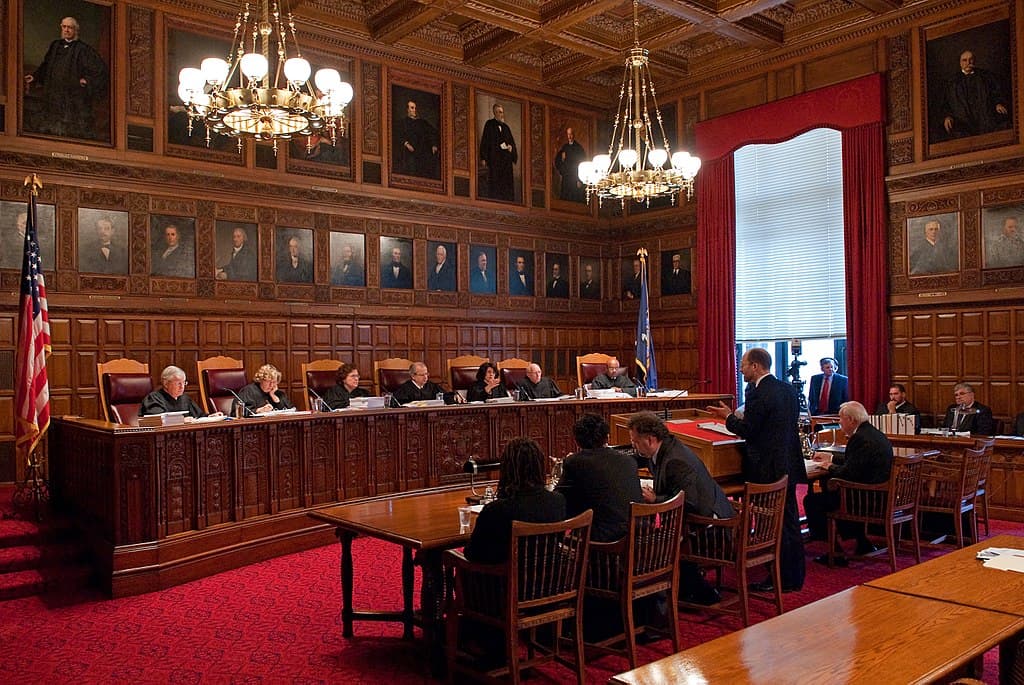Non-Citizen Voting at the Court of Appeals
It’s a moment for New York Democrats to be careful for what they wish.

New York City Democrats are salivating at the prospect that the state’s highest court, after a hearing today, will decide to allow non-citizens to vote in municipal elections. “Be careful for what you wish,” we say — and have said as recently as 2021, when the noble comrades of the City Council legalized votes by legal aliens. It was as brazen a ploy for votes as it gets. Yet the 2024 election results belied the expectations of the leftists backing votes for aliens.
Republicans on Election Day saw a broad boost in support among minority voters that typically back Democrats. The results were most pronounced among Hispanic voters, who make up a large proportion of New York City’s immigrant community. Hispanic voters swung to the right by some 20 points in key swing states like Michigan, Nevada, and Pennsylvania, NPR reports, pointing to a “political realignment taking place” with race as one factor.
Though President Trump failed to carry New York, this trend was on display in the state, too. Statewide, the New York Post reports, Mr. Trump earned 35 percent of the Hispanic vote, a 10-point jump from 2020, and he doubled his level of support among Black voters. In largely Asian neighborhoods, per the Times, Mr. Trump’s support soared some 19 percent from 2020. In predominantly Hispanic neighborhoods that support jumped 55 percent.
In the aggregate, the 2024 results suggest that votes of minority groups like Hispanics are up for grabs to a larger extent than liberals would have liked to think. That, so far, hasn’t stopped New York’s Democrats from pursuing their alien-voting measure in the courts over the opposition of state Republicans, who contend the idea is crosswise with the New York State Constitution. There’s ample basis to back the GOP’s position on this head.
The state’s constitutional parchment, after all, confines “the right of suffrage” to “citizens.” The text of the state charter states that “every citizen shall be entitled to vote at every election” along with “all questions submitted to the vote of the people,” with the proviso that “such citizen is eighteen years of age or over and shall have been a resident of this state, and of the county, city, or village for thirty days next preceding an election.”
New York’s Constitution, too, directs that laws “be made for ascertaining, by proper proofs, the citizens who shall be entitled to the right of suffrage hereby established.” State law would appear to present another obstacle to the alien voting scheme, stating that “No person shall be qualified to register for and vote at any election unless he is a citizen of the United States,” as the Consolidated Laws put it.
Nor does state law permit any local government — even New York City’s — “to adopt a local law which supersedes a State statute relating to the subjects set forth therein.” That’s partly why in February a state appellate court found that the law breached the Constitution of New York, backing a lower court ruling from 2022. “I think it’s victory for common sense,” is how Staten Island’s borough president, Vito Fossella, described the ruling.
“The plain language” of the state Constitution, an appellate judge, Paul Wooten, wrote, “provides that the right to vote in ‘every election for all officers elected by the people’ is available exclusively to citizens.” Yet a subsequent wrinkle could aid the alien voting cause. That’s the amendment to the Constitution, passed via ballot proposition. The Equal Rights Amendment bars discrimination on the basis of “national origin,” among other factors.
Critics have warned the text of the new amendment could effectively short-circuit state law and the Constitution to allow for alien votes. This is likely to be among the questions weighed by the Court of Appeals today in oral arguments on New York City’s alien voting law. The court, composed entirely of Democratic appointees, could prove receptive to the measure. Will New York’s Democrats come to regret a ruling in their favor?

